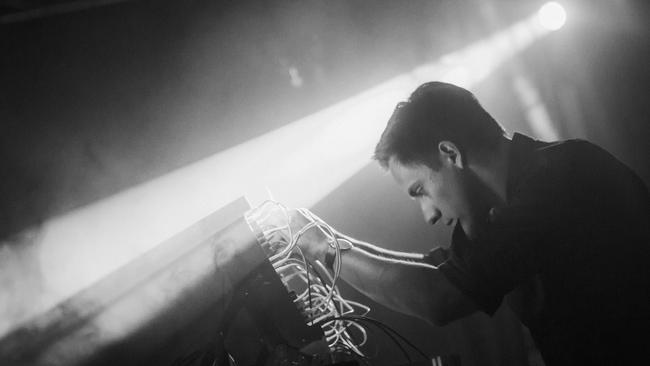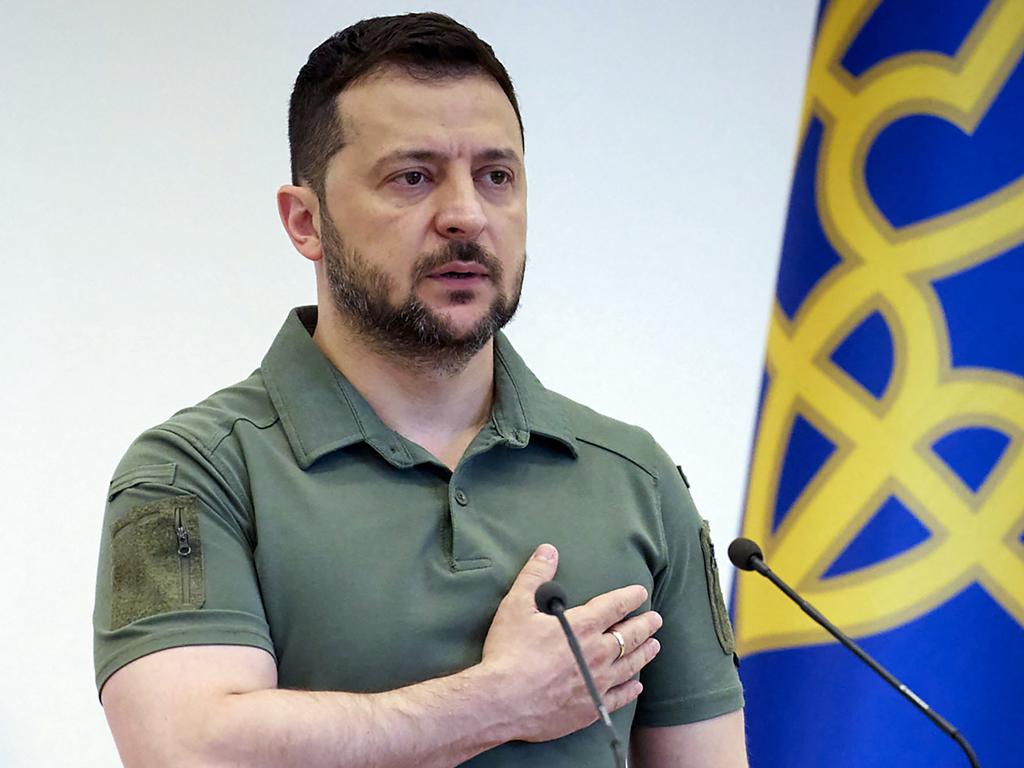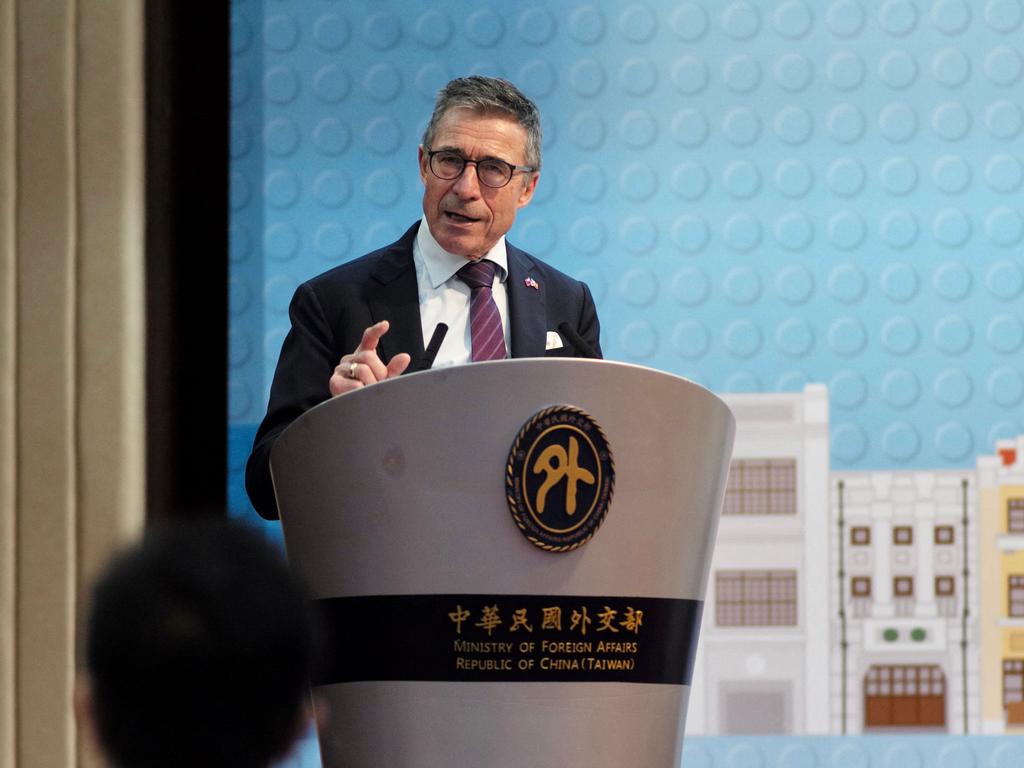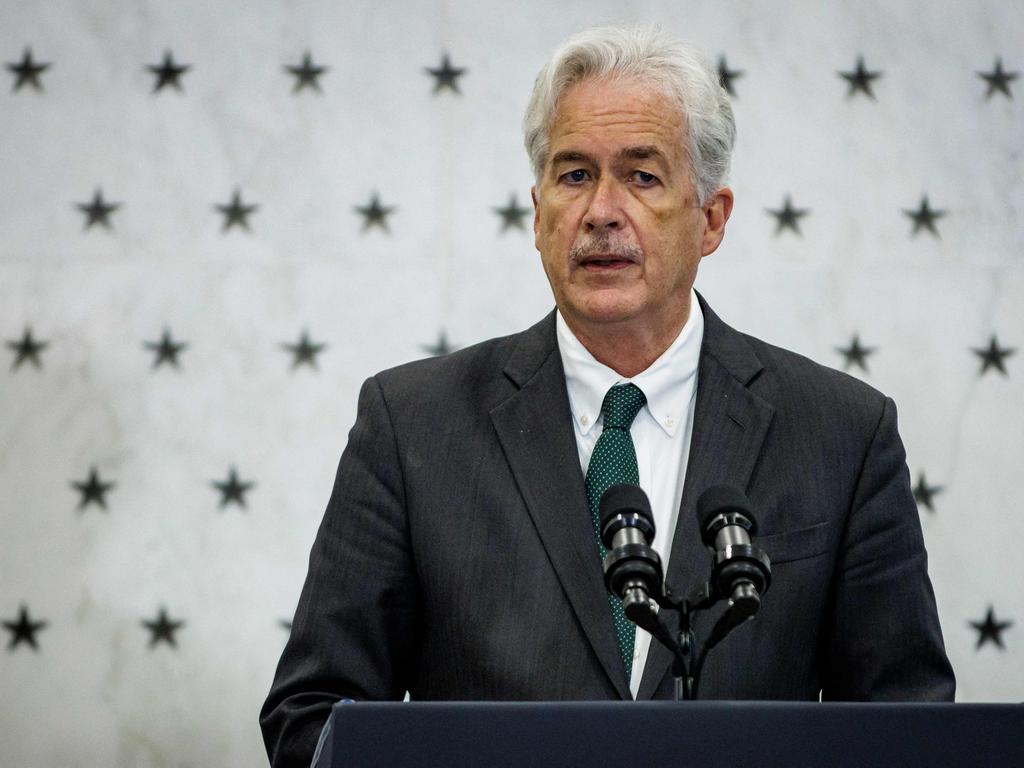If Oleh Shpudeiko closes his eyes and imagines his home city of Kyiv in Ukraine, one sound immediately comes to mind.
“Right now it’s definitely an air raid alarm,” says the composer and sound artist, who records under the name Heinali. “For the past year it’s the sound that dominates the acoustic ecology of Kyiv. Unfortunately, you kind of get used to it. This is the problem with people, we are very good at getting used to stuff and it can be dangerous. Two months after the (Russian) invasion people started ignoring these air raid alarms.”
Before he fled Kyiv on February 24, 2022, his answer would have been vastly different. Shpudeiko is dressed in a navy sweater and is speaking over Zoom from Germany, where he is now based so he can freely perform music around the world. He spent nearly all of his 37-year-old life in the Ukrainian capital where he often captured the banalities of everyday life on a recorder.
“I really liked the sound of the buses. Some of them sigh a lot,” he says, a smile creeping across his face. “They have this very weird sound.” He tries to demonstrate, letting out a sigh that drops in tone and makes us laugh, “they do this melancholic sigh. I remember in The Hitchhiker’s Guide to the Galaxy, the doors of the spaceship made these sighs as well.”
This gets him going. There are the cash registers at his favourite grocery chain “that do these high-pitched beeps that are very peculiar”. And the melodic birdlike sound of the private shuttle bus drivers when they announce their arrival at a destination. Many of these sounds are on Heinali’s record Kyiv Eternal, which he released one year after the Russian invasion of Ukraine as a kind of tribute to his home city, a place that may never be the same. Online music publication Pitchfork said the album was “a journal of endangered memories and a talisman against loss; above all, it’s a testament to survival”.
For Heinali making the record was more of a necessity, born out of his loyalty to Ukraine, than a choice.
“I didn’t want to do it,” he says, reflecting on Kyiv Eternal.
“I had to do it. It contains field recordings I captured during the past 10 years before the war, and my musical sketches from that time as well.”

The record is very different to Heinali’s characteristic sound that has more of a medieval flavour and which audiences will have a chance to experience next weekend at Illuminate Adelaide, South Australia’s winter light and arts festival.
The artist will play music from his latest album Organa, as part of Illuminate’s Unsound music program, but he says he will be thinking of Kyiv.
And of the time, amid the writing of the record, he performed some of its material in an underground bomb shelter.
■ ■ ■ ■
Aside from Shpudeiko and Ukraine, the common thread in this story is the musician’s modular rig, the bespoke highly specialised instrument on which an electronic artist crafts their soundscapes. Instead of buying a pre-designed synthesiser, musicians can configure their own system from thousands of modules that are available on the market. Shpudeiko explains: “Basically, every artist builds their own system for their own artistic goals and visions. Like a Lego constructor, you know?
“A bit like that, but much more expensive.”
Understandably, the synthesiser was farthest from his mind when the war started and he was faced with the precarious decision of whether to evacuate.
On February 24, 2022 – the day Russian president Vladimir Putin announced the launch of “a special military operation” in Ukraine – Shpudeiko and his girlfriend were woken at 4am by the sound of blasts reverberating across the city. Instantly they started thinking of how to keep their mothers safe. And since they didn’t own or even drive a car they started phoning rental providers.
“Some of them didn’t even take the call,” says Shpudeiko of the rental companies that usually serve holiday-makers. “Some of them probably thought we were crazy or something like that – there was a war starting, why would you want to rent a car?” He scoffs at the absurdity of the situation. Miraculously, they managed to find a car with a driver and it arrived late that night. With his backpack stuffed full of essentials Shpudeiko was ready to go but his girlfriend noticed he was missing one thing.
“She said, ‘if you manage to leave or even if you manage to stay in Ukraine, it’s still very important to have your synthesiser. It is very difficult to replace’.
“Basically I was sitting on the back seat and I had to put this synthesiser in front of me. It’s heavy and the case is made of metal so it’s very hard on your legs. We spent 28 hours in that car.”
Shpudeiko tells how his mother suffers from multiple sclerosis, which makes it difficult for her to be active for more than five hours a day.
“She lost her consciousness while we were approaching the (Polish) border. We were in the middle of nowhere and were about to head for the nearest hospital instead of the border. She regained consciousness on her own while still in the car.”
By the time they joined the queue at the border they had been awake for 50 hours. They expected to wait another three or four but the other drivers in the queue said it would be more likely 30 hours before they could cross to safety. They decided to do a U-turn and headed for Lviv, in the western part of Ukraine, where they spent the night with relatives before driving south to the Hungarian border. After what Shpudeiko describes as a “very small” wait of 10 hours, they were finally able to leave the country.
“I was thinking of going back to Kyiv but then after contacting my friends who were staying (there), they said that it’s not a good idea at all because you probably will get killed if you try to come back. The Russian army was near Kyiv and there were absolutely horrible situations where they just shot at the cars and killed a lot of families who were trying to escape or return.”
Moving to little towns near the capital wasn’t safe either “because this is exactly the villages that were then occupied by Russian armed forces”. He ended up going back to Lviv for one month to stay with relatives while the battle of Kyiv was raging.
It was during this time that he worked with his friend Michael Balog who owns the Vedel School of Contemporary Music, to live stream a series of performances to raise money for Musicians Defend Ukraine, an organisation helping to kit out musicians to fight in the war.
“A lot of musicians in Ukraine were temporarily displaced,” Shpudeiko says. “We started thinking about what we could do to help without losing our artistic identity and we devised this plan to do these livestreams asking for donations for humanitarian initiatives and the Ukrainian army.”
![Heinali: “We didn’t really know what to expect [with the war], what was going to happen.” Picture: Ksenia Popova](https://content.api.news/v3/images/bin/72bcf8c775a85c7f4f4f3c00b021d00e?width=650)
But their online broadcasts became increasingly difficult to stage as the air raid alarms became more frequent; on hearing the sound people are supposed to drop whatever they are doing and find safety in a bomb shelter.
After postponing and cancelling several concerts Shpudeiko and Balog shifted their performances to a bomb shelter about 100m from the music school. It was Heinali’s turn to perform when they embarked on their first underground concert on April 2. He turned to material from the album he had started to work on before the invasion, a rich soundscape loosely based on medieval polyphony of the 12th and 13th centuries, or as he says “the so-called Parisian school or the Notre Dame School”. He acknowledges the strange and unexpected symmetry of performing Organa in a kind of underground cathedral.
“Like the Christian catacombs,” he nods. “But I didn’t really think about that. When I was rehearsing it actually didn’t even feel like we were doing a music event. It felt like we were doing some kind of activism. I doubt any of us thought about this as a musical performance. It was a very tense time back then. We didn’t really know what to expect (with the war), what was going to happen. It was maybe even a therapeutic practice to preserve our artistic identity, to try to do something useful as artists.”
Injazero Records has since published a record of that incredible artistic stand, titled Live From a Bomb Shelter in Ukraine, with proceeds going to Musicians Defend Ukraine.
That 28-minute performance, he says, made him feel like a musician again.
“I felt like I reconnected, for the first time since the invasion, with the part of myself I thought was gone for good,” he wrote of the album.
But those feelings were quickly wiped away when he returned that evening to his apartment in Lviv. Reports had emerged from journalists who had witnessed at least 20 civilians laying dead in a street of the town of Bucha, northwest of Kyiv. The UN subsequently documented the killing of 73 civilians, including three children – but local authorities say more than 400 were killed by Russian forces.
“That night when I returned back to my apartment in Lviv I read the news about the Bucha massacre. And it was absolutely,” he pauses, searching, “I don’t even know how to put it into words. I just – I remember this feeling. It’s not even empathy. It’s something different where I felt like all the people who were massacred there as if it was me.”
His voice softens, “I can’t really explain it.”
The war continues. When we speak in the evening it’s daytime in Ukraine and a quick scroll through Twitter shows citizens taking shelter in a Kyiv metro station as Russia launches a missile strike on the capital.
Shpudeiko’s mother has since returned to Kyiv and the artist says he continues to support her financially through his work as a musician abroad; through concerts such as the one he will do in Adelaide with the synthesiser he saved from the war.
When asked what else the world can do to help, his answer is absolute: “Well, weapons.”
“This is what the government says, what we actually need is weapons because the more weapons we have, the more chance we have of defending ourselves. But for any people who want to help we have a lot of small foundations that help different (groups). A lot of people think that if they can’t donate huge sums then they shouldn’t donate – actually, what we do in Ukraine is that most of us donate a very small amount of money every day and when a lot of people do it, it makes a huge impact.”
Heinali will perform on July 14 at Dom Polski Centre, Adelaide, as part of Illuminate Adelaide.

